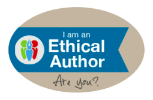






.jpg)

Being a member of ALLi (Alliance of Independent Authors) I often come across pieces of advice that are relevant to all authors. This is one of them.
Whenever we hear stories about authors being defrauded by unscrupulous vanity presses, sometimes for thousands of pounds, the reaction can often be unsympathetic:
“It’s their own fault for being so gullible.”
“They should have done their homework.”
“That was a stupid mistake. Don’t they read about these things?”
Whilst it is true that authors have more information at their fingertips than ever before we still question why some keep falling for these scams and schemes from the same exploitative companies?
1. High-
Vanity presses are quite notorious for being aggressive in their pursuit of authors. Once they have your contact information, vanity presses often flood you with inquiries and “reminders” to join them. One “manuscript referral service” tested resulted in over 120 emails from some of the worst vanity presses in the industry.
Throughout, these solicitations the push is to initiate a phone conversation with the author. A sales rep can apply more manipulative sales tactics when having a direct conversation with you. Remember, once a vanity press gets its hooks into you, the pressure can be relentless.
2. Vanity presses provide emotional validation
Flattering a prospective author is one way that Vanity presses can ensnare you. Usually by assuring you that only the best manuscripts are selected for publication by their “editorial board.” Having submitted a manuscript so epically atrocious it must have reduced more than one editor to tears of laughter, maybe just to tears,
A forty-
What you must remember is, it’s honesty and practical advice you need as an author, not ego stroking and half-
3. Vanity presses prey on an author’s insecurities
Flattery is always seductive, but that’s not the only way a vanity press can work their way into an author’s psyche. Many vanity presses will try to persuade you that you are incapable of producing a professional book without forking out for an expensive, full-
Vanity presses tend to bombard the author with the message that they cannot succeed alone, and that the fees are really only a “manageable investment.”
What most authors don’t realise is that the “manageable investment” could exceed £15,000.
ALLi authors can attest, professional quality is within reach of any author willing to put in the time and effort, and it doesn’t require a £15,000 publishing package to achieve.
4. Prejudices about self-
Despite a decade of rapid evolution, the self-
Self-
Self-
Self-
Self-
Vanity presses routinely exploit these prejudices, often trying to persuade the novice author that they can’t succeed without their company’s help. And, that their only other options are years of fruitless queries to traditional publishers, or a difficult and lonely self-
To the author, this sales pitch may strengthen their lack of belief in them self. Having encountered amateurish self-
Remember, a professional self-
5. Reliable information is lost in the noise
Trustworthy sources of information about self-
Vanity presses purchase highly-
Some Vanity Presses flood the Internet with glowing testimonials from authors they have deceived. Others wage despicable smear campaigns against self-
When searching for reliable information on how to self-
However, you can help arm unwary authors against schemes and scams by sharing watchdog service ratings and alerts. In the end, it’s not the author who should be blamed for falling victim to a rip-
Courtesy of John Doppler at ALLi (https://selfpublishingadvice.org/)
If you are self-